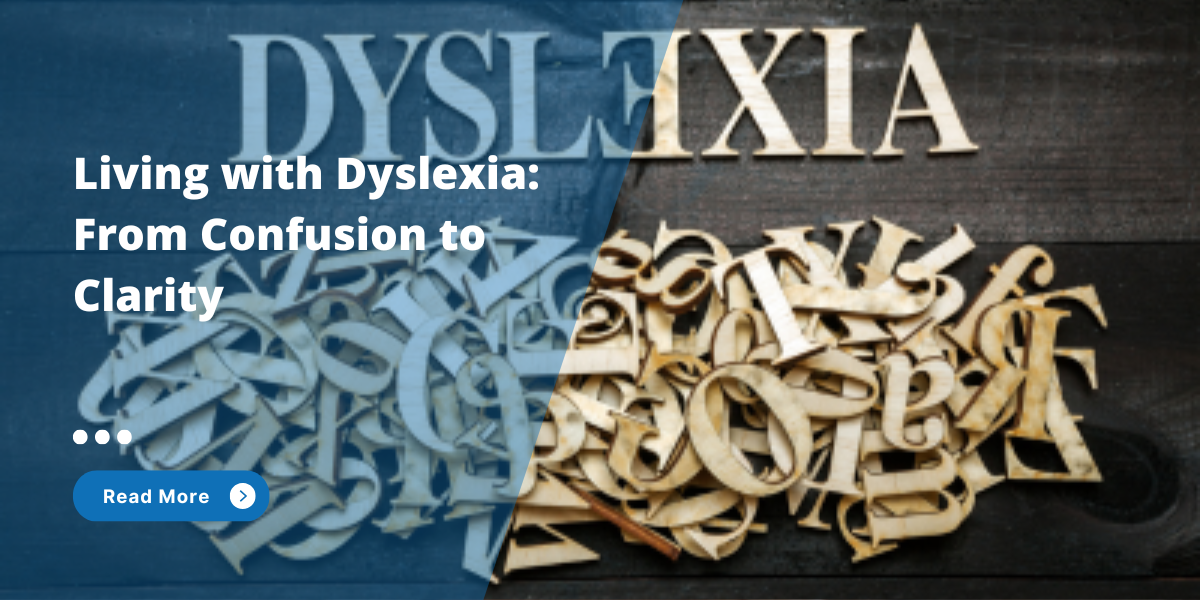How Telehealth is Revolutionizing Autism Care in New Jersey Telehealth medicine is quickly becoming one of the best options Modern...
Continue Reading
Imagine reading a sentence, but the letters seem to dance and swap places, making it challenging to decipher what’s in front of you. This is a daily reality for those with dyslexia, a common learning disorder that transforms the simple task of reading into a complex puzzle. But what if we told you that understanding and navigating through dyslexia is possible with proper support and strategies? Read on!
Dyslexia is a learning disorder that affects accurate and fluent word recognition, spelling, and decoding abilities. Dyslexia tends to run in families. It seems to be associated with specific genes that impact the brain’s processing of reading and language. These challenges arise from a deficit in the phonological component of language, often not correlated to other cognitive abilities. In simpler terms, people with dyslexia struggle to connect letters to the sounds they make, which affects their ability to read, spell, and sometimes speak.
The impact of dyslexia goes beyond reading and writing challenges. It can affect self-esteem, social interactions, and academic or career success. However, with awareness, understanding, and the right tools, individuals with dyslexia can navigate this world successfully.

Dyslexia does not discriminate. It can affect children and adults alike, regardless of intelligence, social background, or education. While it’s often identified in childhood, many adults discover their dyslexia later in life. Recognizing dyslexia in adults can provide them with an explanation for their reading difficulties and open up pathways for support and improvement. People with dyslexia are often gifted in art, computer science, design, drama, electronics, math, mechanics, music, physics, sales, and sports. (See this list of Famous People with Dyslexia)
According to the International Dyslexia Association, up to 20% of the US population (one-fifth of the nation) may experience symptoms of dyslexia, such as slow or inaccurate reading, poor spelling, writing, or difficulty distinguishing similar words. As for the kids, approximately 6-7% of students in the US have a learning disability, with 85% of those having a primary disability in reading and language processing.
Dyslexia manifests through various signs and symptoms, often noticeable as a child starts learning to read. Key indicators include:
It’s important to note that dyslexia affects individuals differently, and the intensity of these symptoms can vary.

Dyslexia can be identified at any age, but it’s most commonly discovered during early school years when kids start reading. Early diagnosis is crucial for managing dyslexia effectively. Psychologists, speech therapists, and educational specialists can assess reading, language, and spelling skills through standardized testing to diagnose dyslexia. (See the Dyslexia Assessment Fact Sheet for more information.)
While dyslexia is a lifelong challenge, early diagnosis, and tailored support can significantly improve reading and writing skills. Therapy and targeted interventions can make a substantial difference for people with dyslexia. Our providers can help people with dyslexia find the right techniques, such as phonics-based instruction and reading strategies tailored to individual needs to enhance reading fluency, comprehension, and retention.
If you or someone you know is facing these challenges, reach out for support. Let our expert help you or your loved ones embrace dyslexia as a different way of learning that can unlock a world of potential.
How Telehealth is Revolutionizing Autism Care in New Jersey Telehealth medicine is quickly becoming one of the best options Modern...
Continue ReadingUnderstanding and Managing Emotions with Message-Centered Therapy Emotions are the brain’s way of analyzing our social environment, and they have...
Continue Reading5 Benefits of Online Depression Therapy While both in-person and online counseling can be very effective for relationship counseling, depression,...
Continue ReadingRequest an Appointment
(201) 497-0289

DISCLAIMER: The health info on this site is provided as an information resource only. It is not to be used or relied on for any diagnostic or treatment purposes. It is not a substitute for professional diagnosis and treatment. Consult our mental health providers before making any medical decisions.
Copyright © 2024 | All Rights Reserved | Created By Invisio Solutions Ltd